Paris Meets Brooklyn: The Global Reach of Contemporary American Dining
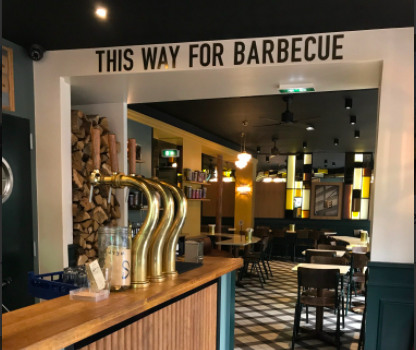
French food is a powerful signifier of French culture, inspiring tourists and international foodies to travel to France to taste authentic ingredients and enjoy exceptional dining experiences. In the last fifteen years, food critics and tastemakers agree that the global food business, which permits the regular importation and exportation of regional ingredients and encourages chefs to experiment with new techniques, has challenged the hegemony of French cuisine and dining. Fabio Parasecoli and Mateusz Halawa’s new book Global Brooklyn: Designing Food Experiences in World Cities (2021) recently asked food historians around the world to discuss how these new food-ways, honed in Brooklyn, New York, influence today’s cuisine. I was pleased to participate in this fascinating study and I am sharing a section of my essay dedicated to the advent of Global Brooklyn in Paris.
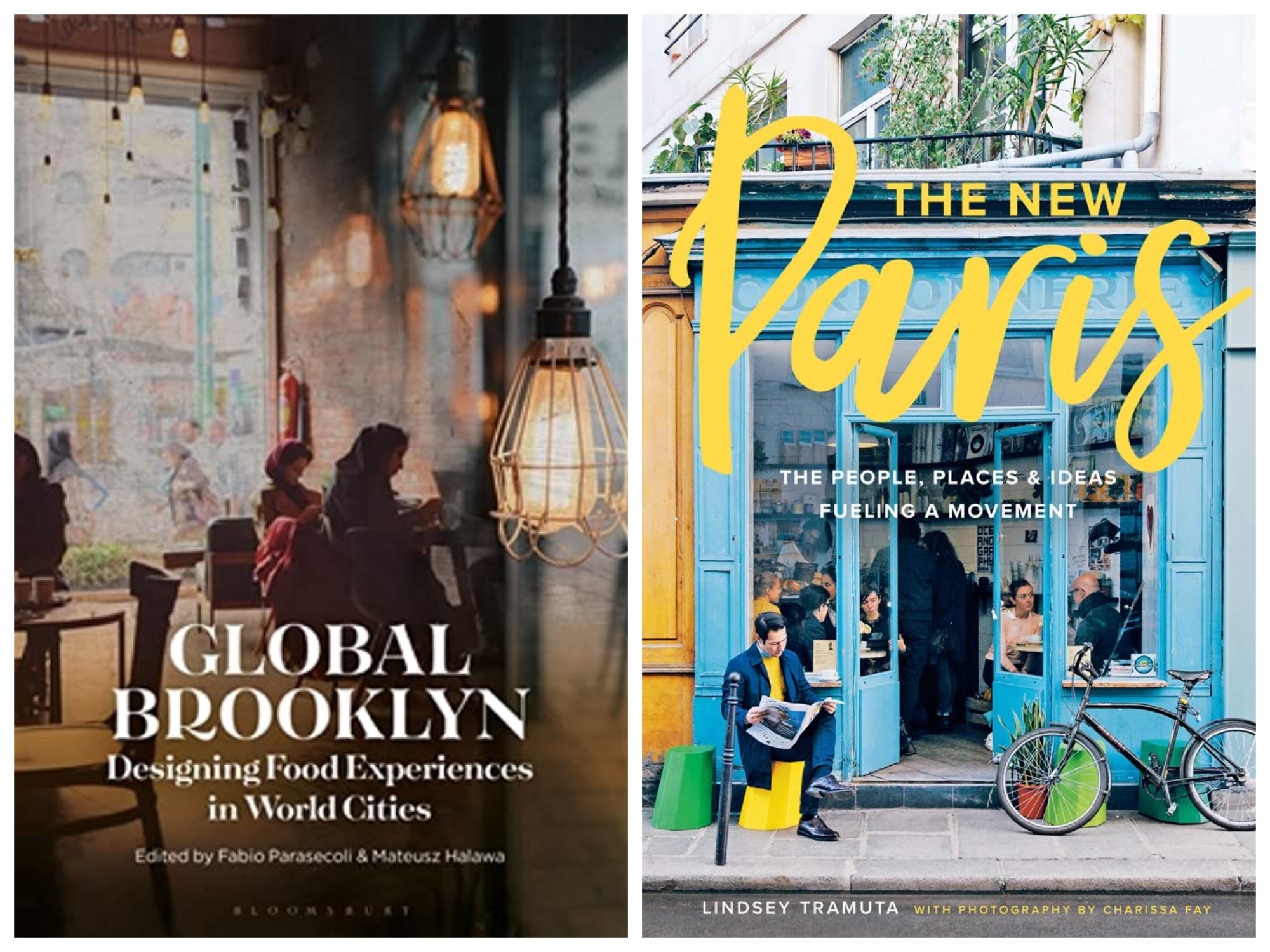
The development of French gastro-nationalism is most closely associated with one of the first celebrity chefs, Auguste Escoffier (1846-1935) whose career transformed fine dining during the Bell Epoque. Escoffier codified ways of cooking and designing dishes that could be replicated outside France, but remained identifiable as French. Escoffier’s recipes were served as plates in sumptuous multi-course meals where he paired food to wine so that diners would have an opportunity to delight in the chef’s ingenuity, mixing textures and flavors often accompanied by rich sauces.
While Escoffier’s recipes still inspire haute cuisine today, notably geared to meals served in at Michelin starred restaurants and luxury hotels, Lindsay Tramuta, in her pioneering work The New Paris, The People Place and Ideas Fueling a Movement (2017), pointed out that after the financial crisis of 2008, a new generation of Parisian chefs searched to align dining with food sustainability. One of the most interesting cross-Atlantic influences at this time coalesced around the most emblematic of American foods: the hamburger.
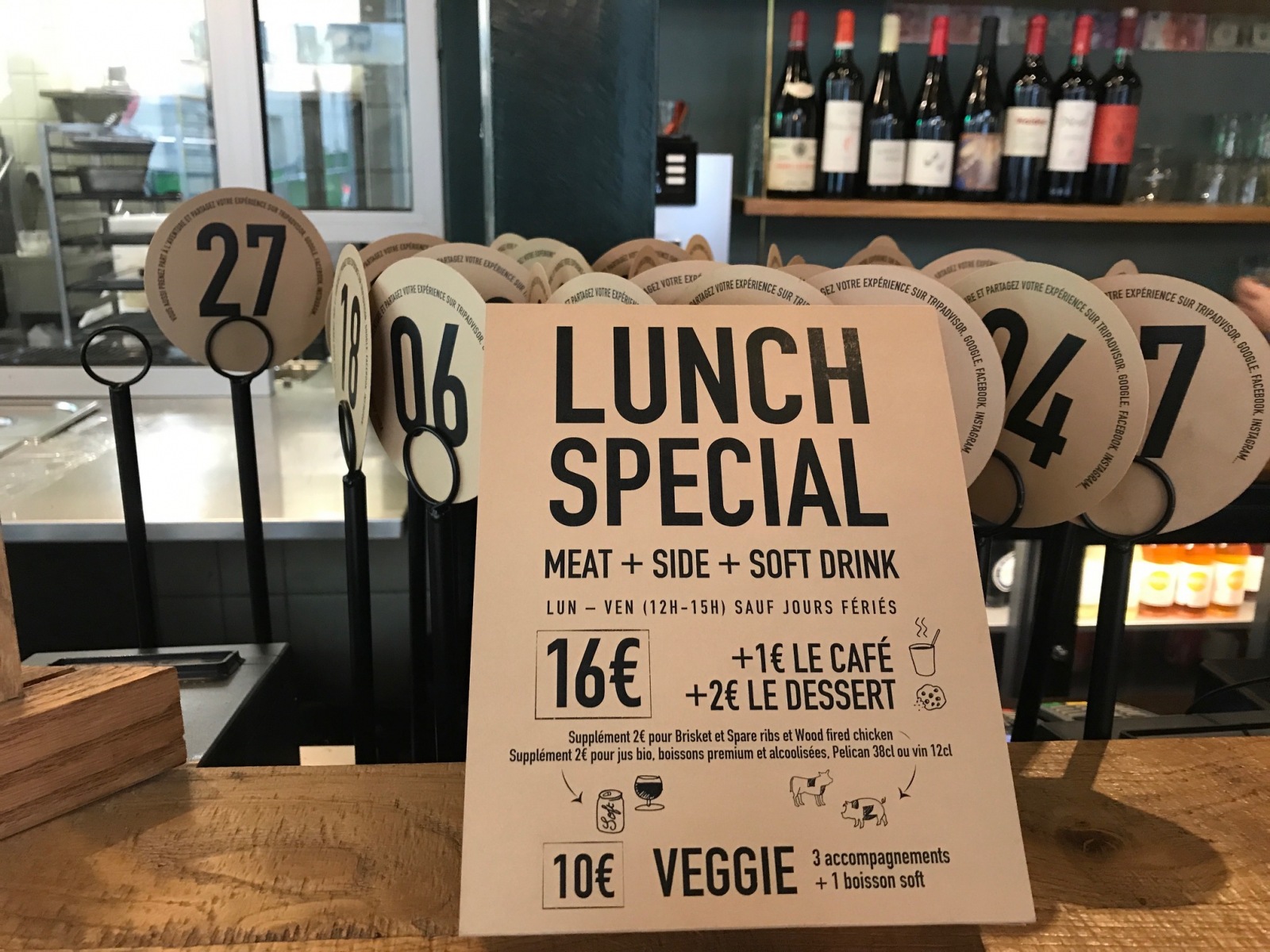
Since the end of WWII, the mutual attraction and disdain for American food in France has been fraught with political overtones and economic anxieties, united by the aggressive marketing of transnational corporations, such as Starbucks and McDonalds, whose commercial ventures have invested in the cityscapes and suburbs of France. Once considered part of the McDonaldization of France, chefs turned to the hamburger to create new tastes and cater to a younger more mobile consumer. One restaurant franchise invites its clients to start a culinary romance with the renamed les hamburgés. Another franchise proposes that creating the hamburger is an artisanal craft, with chefs ‘curating collections’ of hamburger dishes that change with every season. However, it was Kirsten Frederick, an American chef in Paris trained at the prestigious Ecole Ferrandi cooking school, who single-handedly re-introduced the specifically American hamburger to Paris when she opened Le Camion qui Fume, a food truck, in 2011.
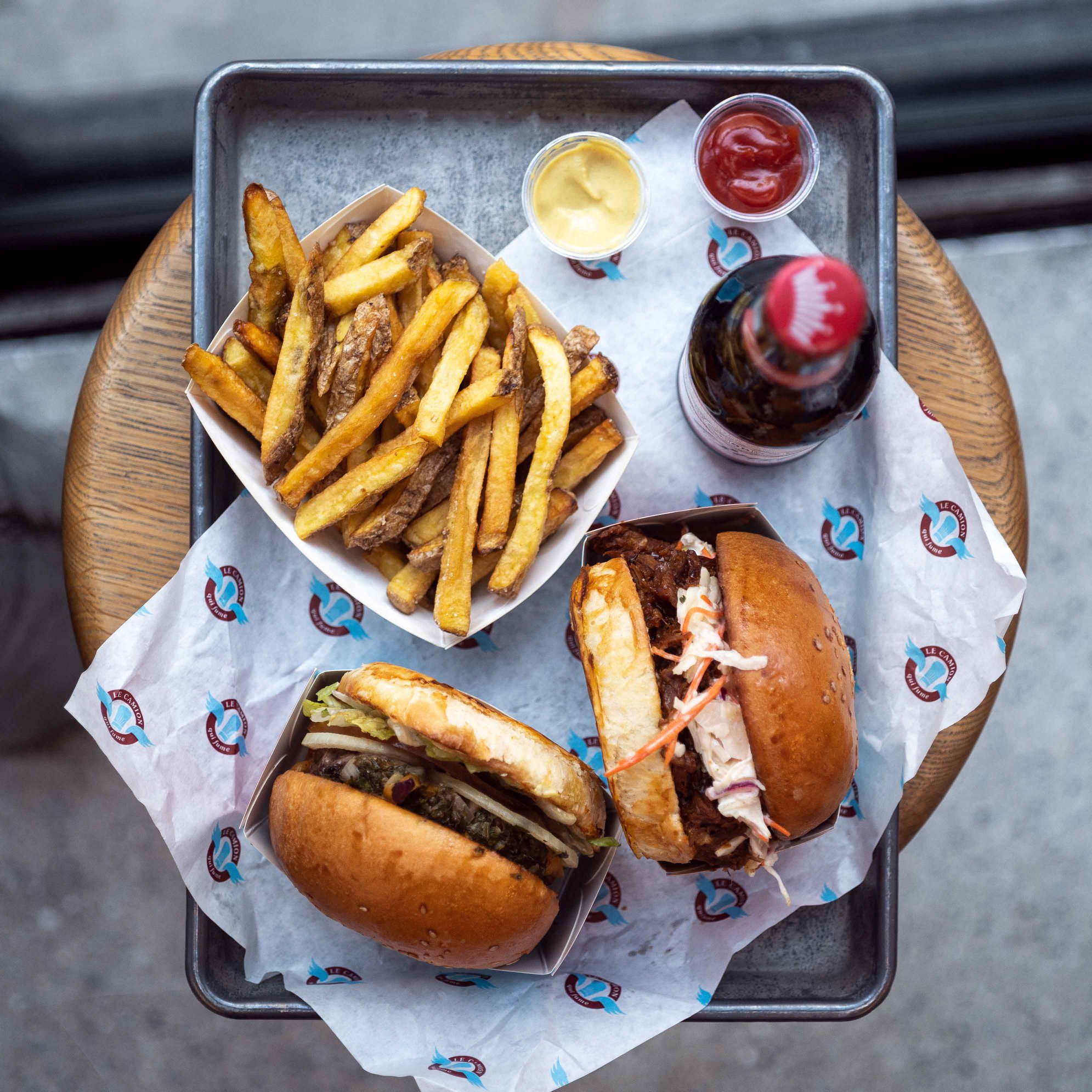
Photo: Le Camion Qui Fume
Frederick’s stroke of genius was offering quality food at a reasonable price to an increasingly nomadic crowd. Frederick helped pioneer a new concept of consumption, bien/pas cher/bon (roughly translated as good ingredients/not expensive/delicious), that benefitted from a long-standing appreciation of American entrepreneurial success stories in France, but married with the rich history of French ingredients. In turn, the American dish became French!
Restaurants have been closed in France for over two months. The pandemic has undermined all food-ways, from production to consumption worldwide. When our post-Covid world opens up again, we will need to support local restaurants. Global Brooklyn chefs have been at the forefront of efforts to promote sustainable food-ways and their role will be even more important in the difficult months ahead. If you would like to learn more about how Global Brooklyn will help shape the future of food design and culture, visit the on-line gallery where you can contribute your own photos: fabioparasecoli.com/global-brooklyn-gallery.When travellers return to France, let’s support our talented and dedicated chefs as they find delicious solutions to a new era of dining in 2021.
Learn more about the history and evolution of French gastronomy on our various sensorial food and wine experiences here or contact us to plan a special tour around “Global Brooklyn” in Paris.

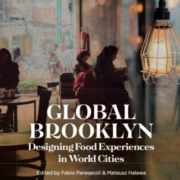



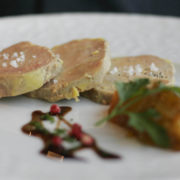




Leave a Reply
Want to join the discussion?Feel free to contribute!